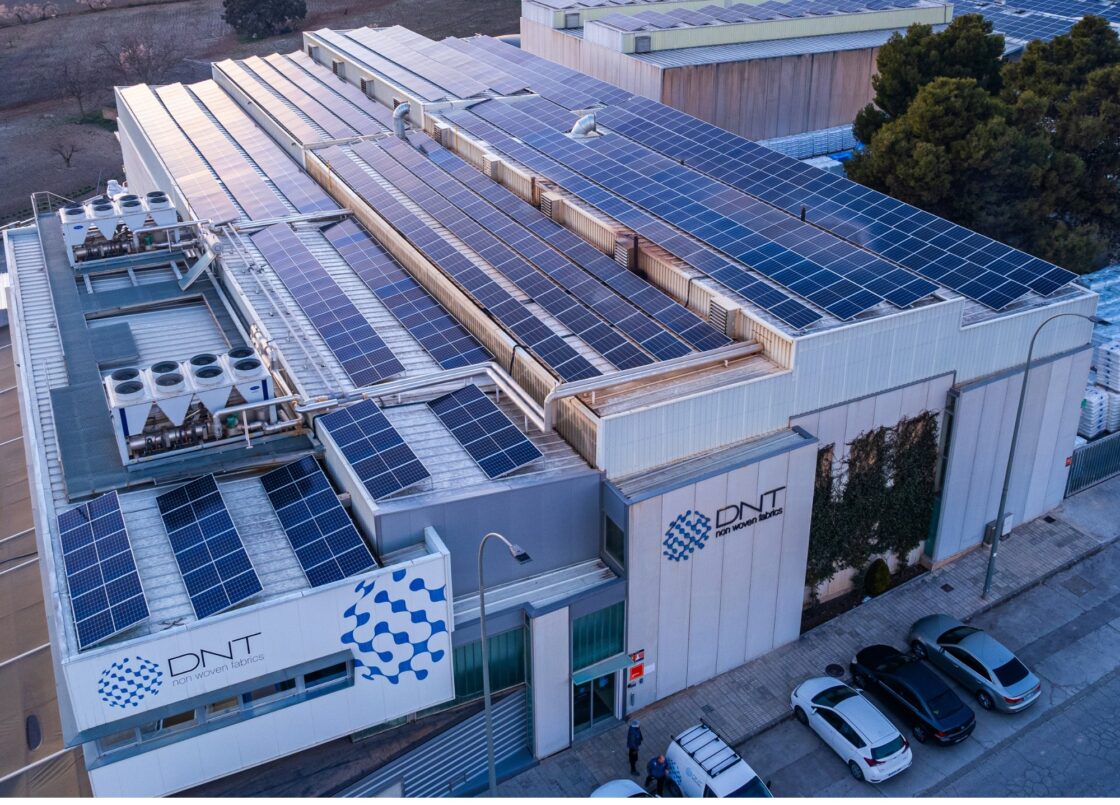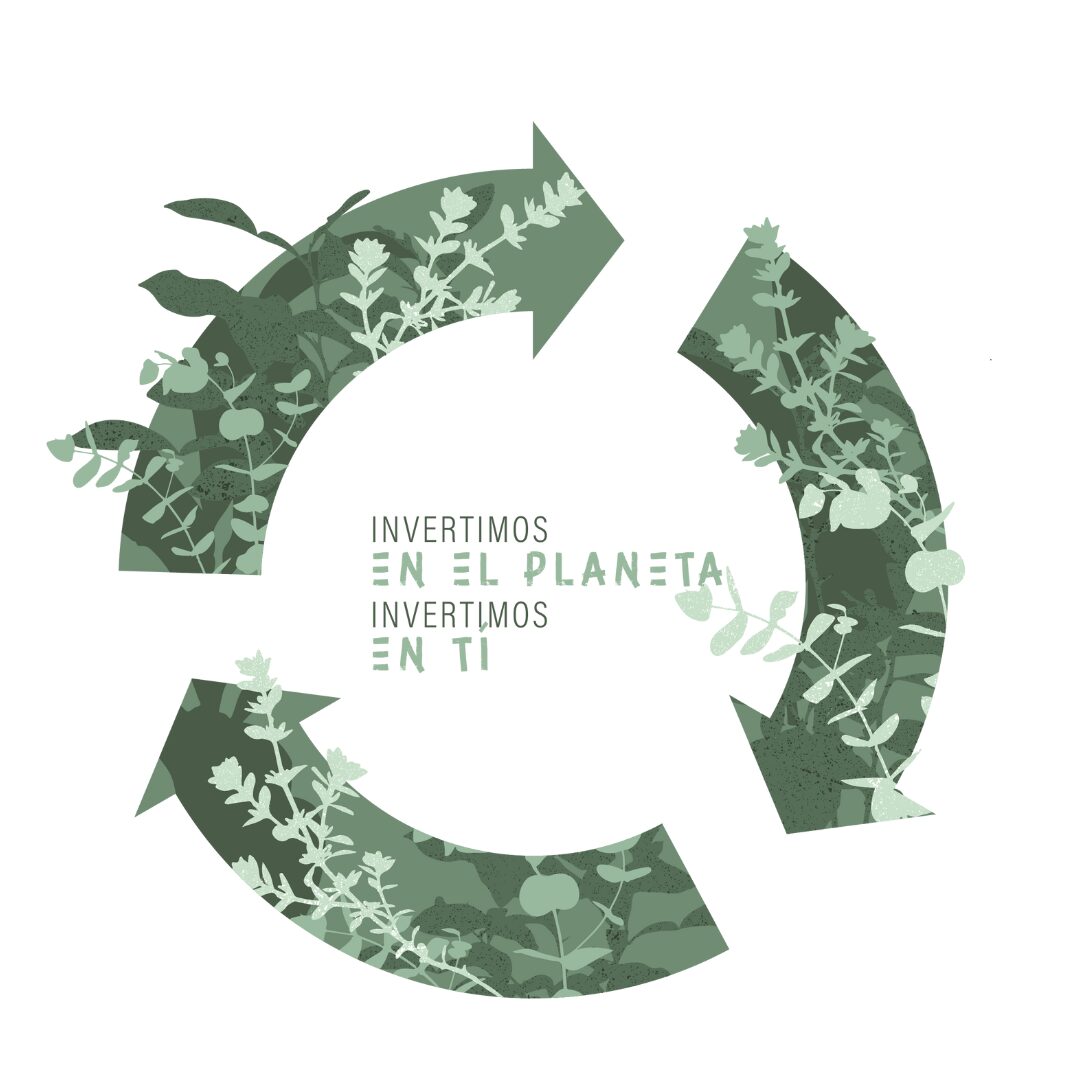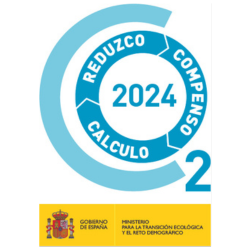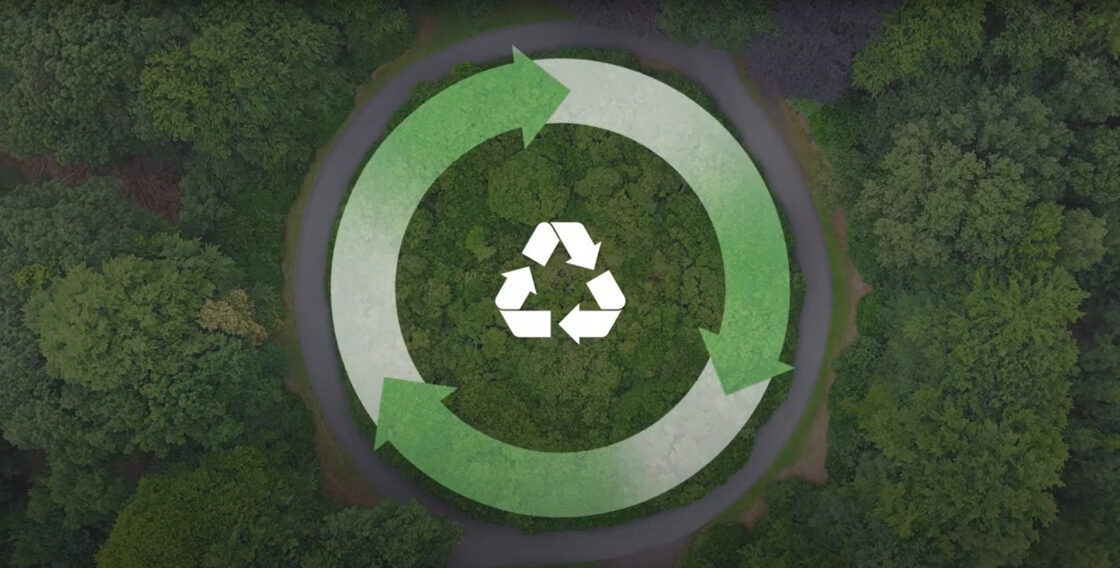DNT Nonwoven Fabrics obtains the Calculate, Reduce, Compensate 2024 seal
DNT Nonwoven Fabrics: We don’t just understand it: we apply it. Our production method has evolved toward a more efficient model, aligned with the circular economy, with a clear goal: to reduce our environmental footprint without sacrificing quality or competitiveness.

What does it mean to have efficient production with a smaller environmental footprint?
Talking about efficient production involves much more than reducing costs. It’s synonymous with resource optimization, responsible consumption of raw materials, conscious waste management, and a transition to cleaner energy. If we add to this an active focus on reducing the ecological footprint, we’re talking about companies that understand their responsibility to the environment.
At DNT Nonwoven Fabrics, we are crystal clear about this. Our production system integrates the concept of a circular economy, ensuring sustainable growth by promoting resource utilization and giving industrial waste a second life.
Circular economy: from waste to resource
One of the key pillars of our transformation has been adopting the circular economy as our working philosophy. This model not only reduces our environmental impact but also improves business profitability by maximizing the use of materials.
At our plant, we transform waste into new resources. We literally recycle waste to give it a new life. This approach isn’t a one-time occurrence; it’s part of a measurable strategy evaluated year after year. So much so that we’ve earned the Calculate-Reduce-Compensate 2024 seal, an official recognition that accredits our true commitment to sustainability.

The value of the Calculate-Reduce-Compensate stamp
This seal is not just a logo. It’s certification that we follow a rigorous model of continuous evaluation and improvement. Each registered footprint is accompanied by a reduction plan, and the results are audited before being accepted into the system.
In our case, achieving this seal means we meet strict criteria and our emissions trend is downward. This official recognition reinforces the trust of our customers and stakeholders and motivates us to continue to focus on environmental efficiency as a strategic pillar.

The impact of measuring and compensating
Most companies make a common mistake: they believe that being sustainable is just a matter of intentions. But sustainability can be measured, audited, and improved.
In our case, we calculate our greenhouse gas emissions, which has allowed us to clearly identify the sources of greatest impact. We then offset a portion of our carbon footprint through CO₂ removal projects, reinforcing our commitment to a cleaner future for all.
Furthermore, we implement a continuous improvement plan, reducing our emissions year after year. And we’re not just saying it: our progress is recorded in the Ministry for Ecological Transition’s Carbon Footprint Registry, which validates and certifies these efforts.

Offset emissions with certified projects
One of the most important parts of our strategy is participating in certified carbon sequestration projects. Thanks to the national registry created by Royal Decree 163/2014, we have been able to connect with forestry initiatives that not only capture CO₂ but also generate social and ecological benefits.
These projects combine carbon dioxide absorption, rural environmental improvement, biodiversity enhancement, and job creation in underpopulated areas. Every year, we verify that our offsets come from officially registered projects, allowing us to maintain the traceability and credibility of our actions.
Local production as a solution to imports
Sustainability is not only about how we produce, but also where we produce. Faced with the option of importing products with high environmental costs, we decided to generate our solutions here, at the source.
This decision not only strengthens the local economy but also reduces emissions associated with international transportation, one of the largest generators of carbon footprint in global trade. At DNT Nonwoven Fabrics, we believe the best way forward is by acting locally to impact globally.
Sustainability applied to the entire value chain
Being sustainable isn’t just a part of the business; it’s an entire corporate culture. We’ve integrated sustainability into every step of our value chain: from selecting suppliers to delivering the final product to the customer.

We are guided by five core values that we apply to our entire production chain:
- Sustainability: We transform waste into new resources and implement circular economy practices to minimize our environmental impact.
Social responsibility: We are committed to the well-being of our community, promoting practices with a high positive impact on society. - Orientación al cliente: Escuchamos activamente a nuestros clientes, fomentando una relación de confianza y cercanía para ofrecer soluciones a medida que optimicen su experiencia y resultados.
- Innovación: Desarrollamos productos pioneros que responden a las necesidades del mercado.
- Quality: We guarantee high-performance, durable, and sustainable solutions.
A model that can be replicated
Efficient production with a smaller environmental footprint isn’t a utopia; it’s a reality. At DNT Nonwoven Fabrics, we demonstrate this with action: from our registration in the Carbon Footprint Registry, to offsetting certified national projects, to integrating the circular economy into all our operations.
Beyond certificates and labels, what really counts is the impact we have on the planet and society.

